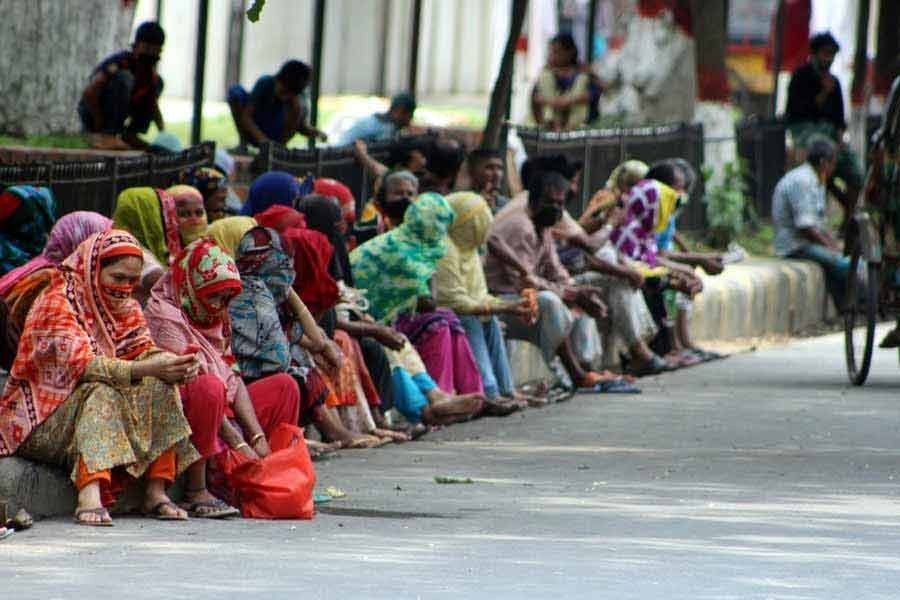Except a few super-rich nations, the rest of the world has yet to come free of the impacts of the Covid pandemic. Developing and poorer nations, like Bangladesh, are among them. The Covid-19 fallout has already added to the newly identified woes the country is grappling with. Recent findings of a survey show that the impact of the Covid pandemic has worsened the income vulnerability of people, particularly of women, youths, and the urban poor. An in-depth survey carried out recently by the BIDS (Bangladesh Institute of Development Studies) shows that despite economic recovery in some areas, challenges are proving daunting. They include ensuring health and education, employment generation and reduction in poverty.
In the context of the prevalent Covid-19 impacts in all social strata and sectors, a general round-up may not be considered too early. According to socio-economic forecasts made by many Bangladeshi think tanks, the post-Covid stasis accompanying tense implosions may not go away soon. Perhaps in order to draw the outlines of and put in perspective a clear picture of the Bangladesh situation, the BIDS hosted a seminar in Dhaka on October 26, marking the survey's release. While dwelling on the recovery from Covid impacts, World Bank (WB) senior economist Dr Wambile has observed that the impacts were unequal, 'affecting the poor and vulnerable disproportionately, and creating the new poor'. Referring to the unequal recovery, across sectors, from the Covid-19 shocks, the World Bank senior economist found the income recovery to be better among those in manufacturing, agriculture, salaried jobs; while it was quite slow for the self-employed and service-sector workers.
The level of food insecurity during the Covid-time has not escaped the notice of the WB economist. On this issue, many people back in 2020-21 could not imagine even faintly that the world economy would be heading for another spate of punishing food crunches thanks to the unbearable inflationary pressure caused by the Russia-Ukraine war. The post-corona food inflation is more a problem of supply than production fall, unfortunately with global implications. Biased global politics and aggressively manipulative businesses have led to food insecurity to an unprecedented level. Vulnerability of the most food-insecure regions has become a cause for serious concern.
The economist suggests creation of time-befitting infrastructure in order to cope with future economic and health-sector shocks. The government and the development partners should expand and strengthen safety nets for the victims. As a sector worst-affected by the Covid shocks, the education sector deserves special attention to put into effect a reversal of the leaning losses caused by indefinite closures of educational institutions. Since the learning gaps have been caused by a global and an initially unwieldy pandemic, its solution needs country-specific focus and strategy. The country, mercifully, didn't have to brace for fresh bouts of the corona dread thanks to its prompt start of the vaccination campaign. Educational institutions have been spared an explosion of Covid-19 cases, so have been the slums and villages. So, the country's economic recovery could take place steadily but for the manipulative global energy market and the Russia-Ukraine war. In such a crunch time, all the multilateral agencies' suggestions notwithstanding, the government must devise expanded vulnerability support programmes for saving the worst affected.


